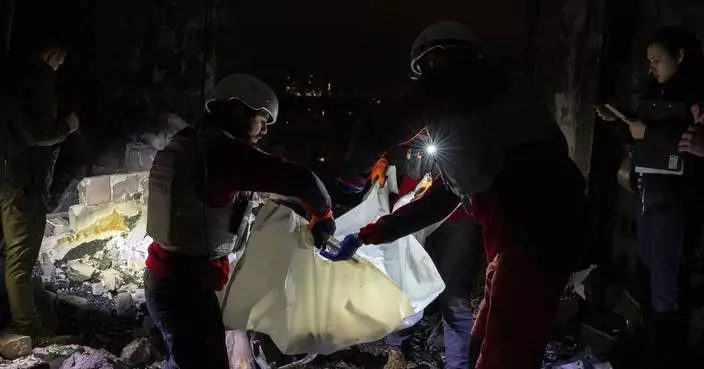EASTBOURNE, England (AP) — Emma Raducanu is in no rush these days.
The 2021 U.S. Open champion skipped the French Open and decided not to play at the Paris Olympics.
Raducanu sent a message after beating Sloane Stephens 6-4, 6-0 in the first round of the grass-court Eastbourne International on Tuesday.
The 21-year-old Raducanu wrote “My own pace” on a courtside TV camera at Devonshire Park.
Raducanu will be a wild-card entry for Wimbledon next week after missing last year's tournament because of hand and ankle injuries.
“I’m going to do things on my own time,” she said after beating Stephens, the 2017 champion at Flushing Meadows. “I'm in no rush to do anything.”
She added that she's “less susceptible to outside opinions or views.”
Raducanu will next face No. 5 Jessica Pegula, who won the title at the Berlin Ladies Open on Sunday.
On Monday, top-seeded Elena Rybakina withdrew from Eastbourne. She was the 2022 Wimbledon champion.
In men's first-round play, Lorenzo Sonego beat Henry Searle 6-3, 6-2, and Emil Ruusuvuori defeated Cam Norrie 7-6 (9), 6-3.
AP tennis: https://apnews.com/hub/tennis

USA's Sloane Stephens, top, plays Britain's Emma Raducanu on day four of the Rothesay International at Devonshire Park, Eastbourne, england, Tuesday June 25, 2024. (Andrew Matthews/PA via AP)

USA's Sloane Stephens plays Britain's Emma Raducanu on day four of the Rothesay International at Devonshire Park, Eastbourne, england, Tuesday June 25, 2024. (Andrew Matthews/PA via AP)

Great Britain's Emma Raducanu in action against USA's Sloane Stephens on day four of the Rothesay International at Devonshire Park, Eastbourne, England, Tuesday, June 25, 2024. (Andrew Matthews/PA via AP)
TEL AVIV, Israel (AP) — Israel attacked military targets in Iran with pre-dawn airstrikes Saturday in retaliation for the barrage of ballistic missiles the Islamic Republic fired on Israel earlier this month. The strikes marked the first time Israel’s military has openly attacked Iran.
Following the airstrikes, Iran’s Foreign Ministry said it had a right to self-defense, and “considers itself entitled and obligated to defend against foreign acts of aggression.”
Israel's military said it targeted facilities that Iran used to make the missiles fired at Israel as well as surface-to-air missile sites. There was no immediate indication that oil or nuclear sites were hit — which would have marked a much more serious escalation — and Israel offered no immediate damage assessment.
Explosions could be heard in Iran's capital, Tehran, until sunrise. The Islamic Republic said the attacks caused “limited damage." Iran’s military said the strikes targeted military bases in Ilam, Khuzestan and Tehran provinces, without elaborating. Iran’s army said two soldiers were killed, Iran’s Al-Alam television reported.
The strikes risk pushing the archenemies closer to all-out war at a time of spiraling violence across the Middle East, where militant groups backed by Iran — including Hamas in Gaza and Hezbollah in Lebanon — are already at war with Israel.
Iran hadn’t faced a sustained barrage of fire from a foreign enemy since its 1980s war with Iraq.
On Oct. 1, Iran launched at least 180 missiles into Israel in retaliation for devastating blows Israel landed against Hezbollah. They caused minimal damage and a few injuries. Prime Minister Benjamin Netanyahu said Iran “made a big mistake.”
Israel is also widely thought to be behind a limited airstrike in April near a major air base in Iran that hit the radar system for a Russian-made air defense battery. Iran had fired a wave of missiles and drones at Israel in April, causing minimal damage, after two Iranian generals were killed in an apparent Israeli airstrike on an Iranian diplomatic post in Syria.
“Iran attacked Israel twice, including in locations that endangered civilians, and has paid the price for it,” Israeli military spokesperson Rear Adm. Daniel Hagari said. “We are focused on our war objectives in the Gaza Strip and Lebanon. It is Iran that continues to push for a wider regional escalation.”
Hagari added: “If the regime in Iran were to make the mistake of beginning a new round of escalation, we will be obligated to respond.”
Israel’s attack effectively told Iran it would not remain silent, while not taking out highly visible or symbolic facilities that could prompt a significant response from Iran, said Yoel Guzansky, a researcher at Tel Aviv’s Institute for National Security Studies who formerly worked for Israel’s National Security Council.
It gives Israel room for escalation if needed, and targeting air defense systems weakens Iran’s capabilities to defend against future attacks, he said, adding that if there is Iranian retaliation, it should be limited.
“There’s more chances of Iranian restraint because of their interests, because of pressure from the outside, and because of the nature of the Israeli attack … that allows them to save face,” he said.
Israel has again shown its military precision and capabilities are superior to Iran's, said Sanam Vakil, the director of the Middle East and North Africa program at the London-based think tank Chatham House.
“By targeting military sites and missile facilities over nuclear and energy infrastructure, Israel is also messaging that it seeks no further escalation for now. This is a sign that the diplomacy and back-channel efforts to moderate the strike were successful.”
Nuclear facilities and oil installations were seen as possible targets for Israel’s response, before U.S. President Joe Biden’s administration won assurances from Israel in mid-October that it would not hit such targets.
After the strikes, the streets in Iran's capital were calm. Children went to school and shops opened as usual. The only sign of concern was long lines at the gas stations — a regular occurrence in Tehran when military violence flares as people stock up on fuel.
Israel’s opposition leader, Yair Lapid, criticized the decision to avoid “strategic and economic targets," saying on X that “we could and should have exacted a much heavier price from Iran.”
The United States warned against further retaliation, and Britain said Iran should not respond.
Saudi Arabia was one of multiple countries in the region condemning the strike, calling it a violation of Iran's "sovereignty and a violation of international laws and norms.” Its foreign ministry rejected the escalation in the region.
Regional tensions have been soaring in recent weeks.
In Lebanon, dozens were killed and thousands wounded in September when pagers and walkie-talkies used by Hezbollah exploded in two days of attacks attributed to Israel. A massive Israel airstrike the following week outside Beirut killed Hezbollah’s longtime leader, Hassan Nasrallah, and several of his top commanders.
Israel ratcheted up the pressure on Hezbollah by launching a ground invasion into southern Lebanon. More than a million Lebanese people have been displaced, and the death toll has risen sharply as airstrikes hit in and around Beirut.
Israel and Iran have been bitter foes since the 1979 Islamic Revolution. Israel considers Iran to be its greatest threat, citing its leaders’ calls for Israel’s destruction, their support for anti-Israel militant groups and the country’s nuclear program.
During their yearslong shadow war, a suspected Israeli assassination campaign has killed top Iranian nuclear scientists, and Iranian nuclear installations have been hacked or sabotaged, all in mysterious attacks blamed on Israel.
Meanwhile, Iran has been blamed for a series of attacks on shipping in the Middle East, which later grew into the attacks by Yemen’s Houthi rebels on shipping through the Red Sea corridor.
The shadow war has increasingly moved into the light since Oct. 7, 2023, when Hamas and other militants attacked Israel. They killed 1,200 people, mostly civilians, and took some 250 hostages into Gaza. In response, Israel launched a devastating air and ground offensive against Hamas, and Netanyahu has vowed to keep fighting until all of the hostages are freed. Some 100 remain, of whom roughly a third are believed to be dead.
More than 42,000 Palestinians have been killed in largely devastated Gaza, according to local health officials, who don’t differentiate between civilians and combatants but say more than half of the dead have been women and children.
Gambrell reported from Dubai, United Arab Emirates and Schreck from Jerusalem. Associated Press writers Amir Vahdat in Tehran, Iran; Abby Sewell in Beirut; Lolita C. Baldor, Farnoush Amiri and Zeke Miller in Washington; David Rising in Bangkok; and Aamer Madhani in Wilmington, Delaware, contributed to this report.
Follow AP’s war coverage at https://apnews.com/hub/israel-hamas-war
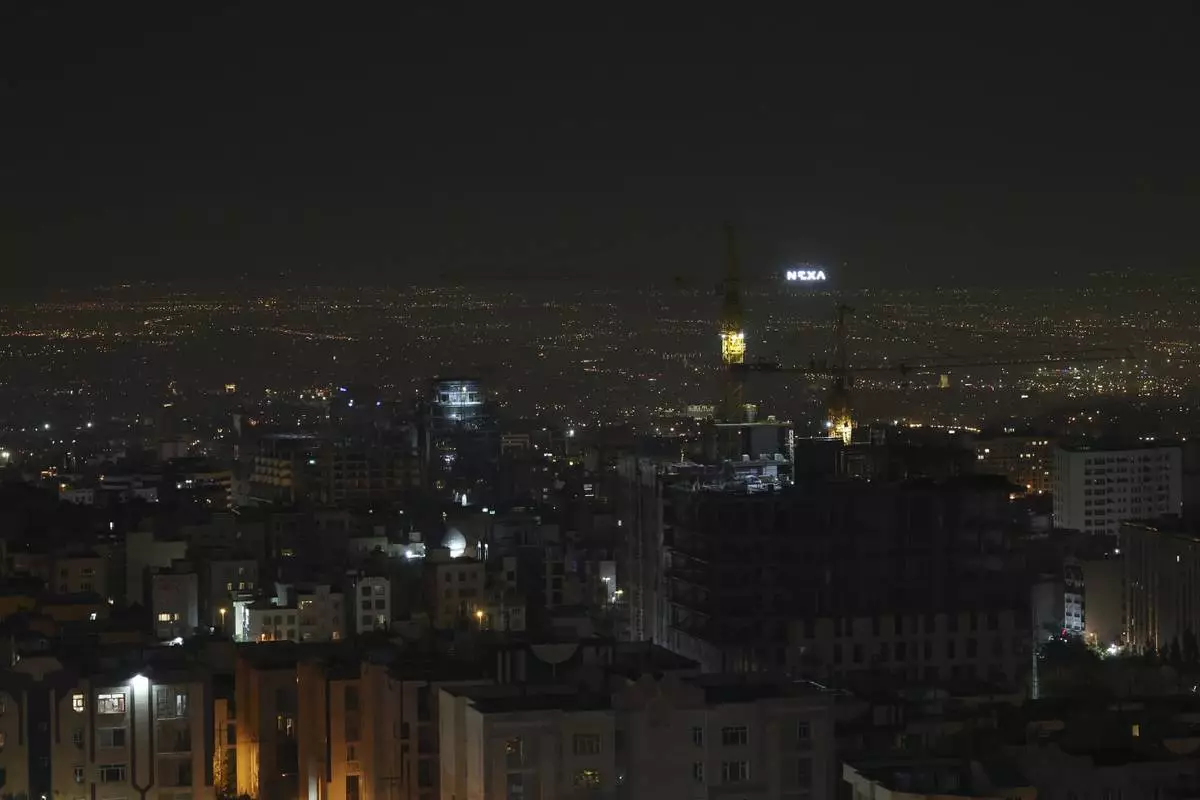
A view of Tehran capital of Iran is seen, early Saturday, Oct. 26, 2024. (AP Photo/Vahid Salemi)
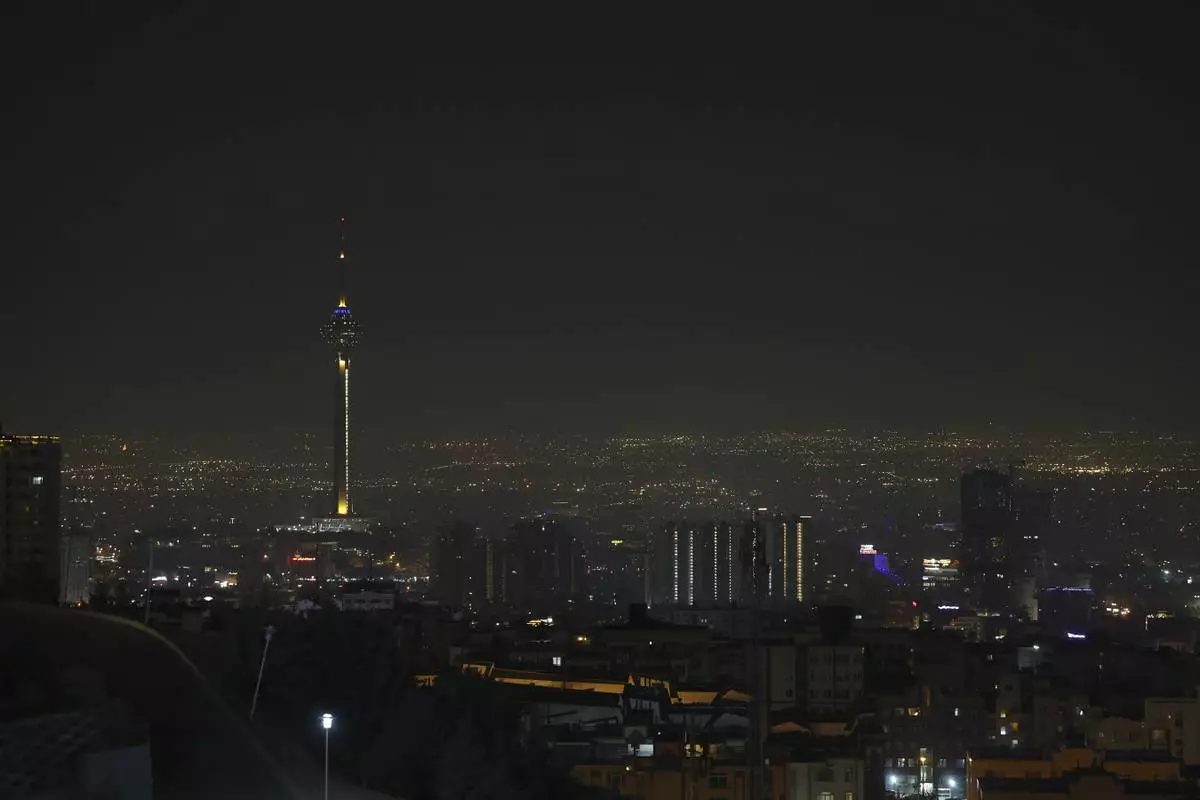
A view of Tehran capital of Iran is seen, early Saturday, Oct. 26, 2024. (AP Photo/Vahid Salemi)
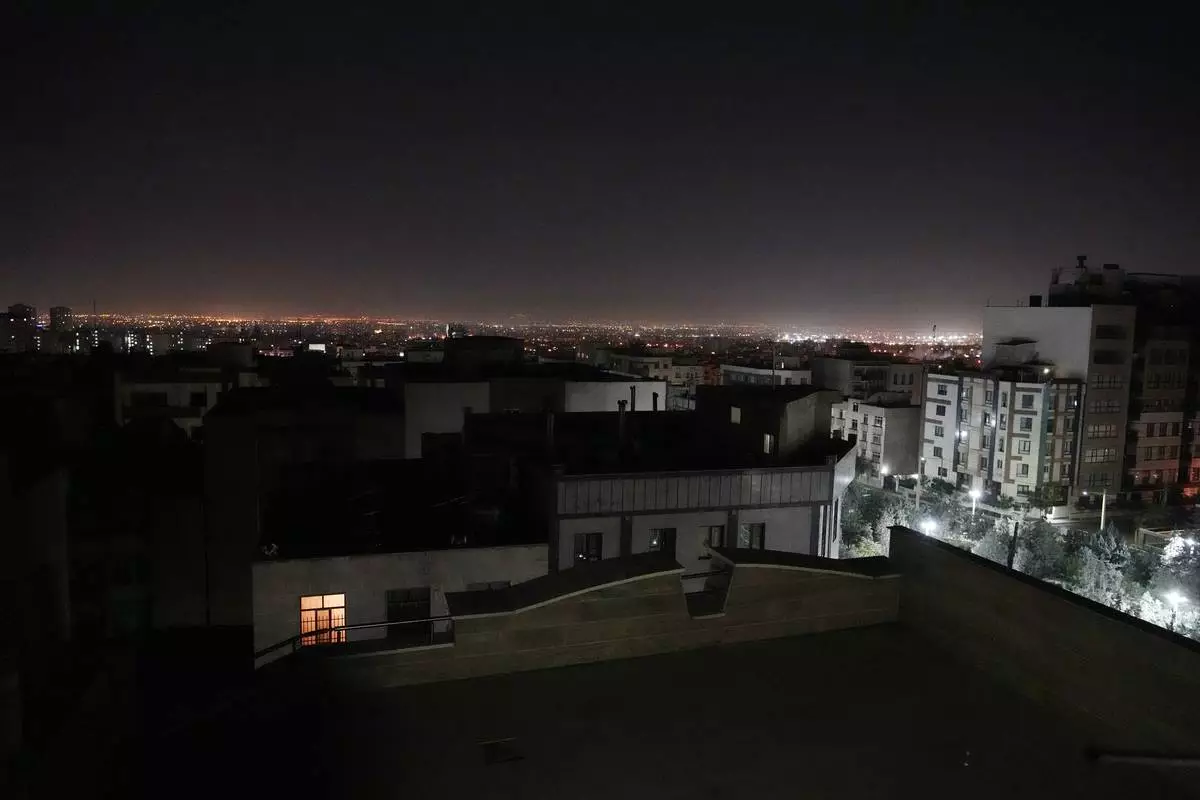
A view of Tehran capital of Iran is seen, early Saturday, Oct. 26, 2024. (AP Photo/Vahid Salemi)
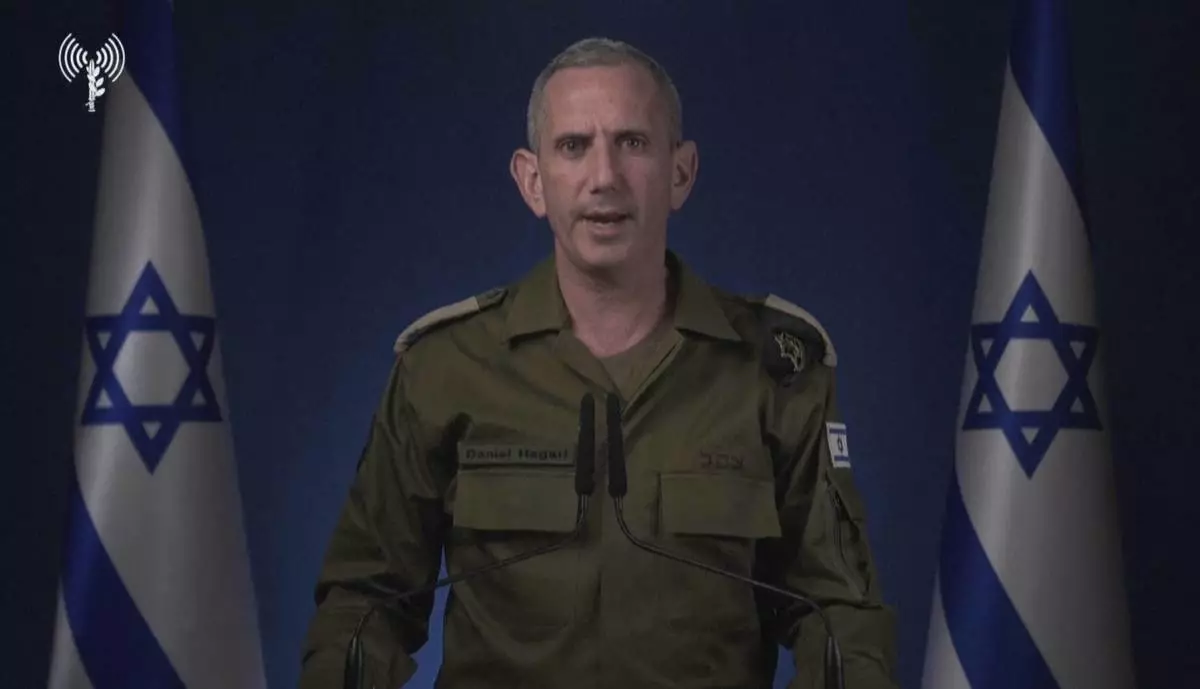
In this image taken from video released by the Israel Defense Forces early Saturday, Oct. 26, 2024, Israeli military spokesperson Rear Adm. Daniel Hagari announces that the IDF is conducting strikes on military targets in Iran. (Israel Defense Forces via AP)
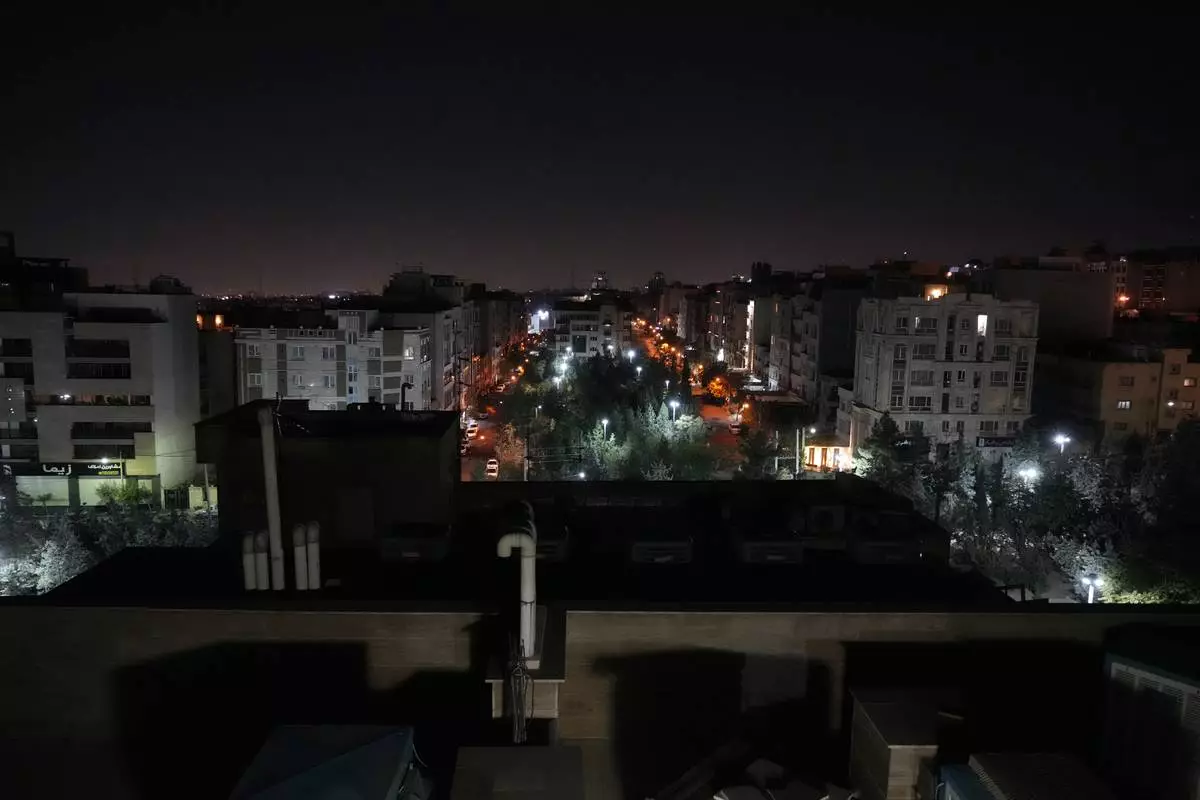
A view of Tehran capital of Iran is seen, early Saturday, Oct. 26, 2024. (AP Photo/Vahid Salemi)











